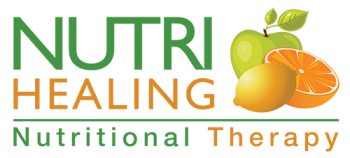What is the function of the Liver - February 2010
What is the function of the Liver?
The liver is the largest glandular organ of the body; it weighs about 3 lbs and is reddish brown in colour. It is located on the right hand side of the abdominal cavity beneath the diaphragm.
The liver has many functions:
- To produce substances that break down fats,
- Convert glucose to glycogen (stored energy),
- Produce urea (the main substance of urine),
- Make certain amino acids (the building blocks of proteins),
- Filter harmful substances from the blood (such as alcohol),
- Storage of vitamins and minerals (vitamins A, D, K and B12)
- Maintain a proper level of glucose in the blood.
- Assists the body with digesting food, absorbing nutrients and also eliminating certain toxins from the body.
- Responsible for producing cholesterol.
The liver also has the ability to regenerate itself. As a result, symptoms of decreased liver function may not appear until damage is serious.
What is Cholesterol?
Cholesterol is a soft, waxy substance found in the body tissues and blood plasma of vertebrates (animals with bones); it is only sparingly soluble in water, but much more soluble in some organic solvents.
80% of Cholesterol found in the body is produced in the liver; the adrenal glands and reproductive organs make up the other 20%.
Cholesterol is a natural and necessary component of your body cells and many hormones. In the cell membranes, it keeps membranes fluid and functional and also forms the backbone of hormones such as estrogen and testosterone.
Cholesterol is transported in the bloodstream as lipoproteins to their destinations.
Unfortunately Cholesterol is often referred to as being a bad thing, but only becomes bad when high levels of LDL are present. Work to maintain a higher ratio of HDL's to LDL's
High levels in the bloodstream are associated with hardening of the arteries, premature coronary heart disease and many other vascular disease problems.
Unhealthy blood cholesterol levels are one of the major risk factors for heart disease but the good news is that blood cholesterol levels can be modified.
What effects Liver function?
Some of the diseases that affect liver function are:
- Hepatitis (an inflammation of the liver)
- Cirrhosis (caused by the liver deteriorating and scar tissue replacing healthy tissue)
- Cysts
- Bile duct obstructions
- Alcohol consumption
- Cancer
What would be the Symptoms?
Symptoms of liver disease and decreased liver function include the whites of the eyes taking on a yellowish cast, abdominal pain or swelling, nausea, skin that has a chronic itch, dark-coloured urine, blood in the stools and chronic fatigue.
Can you test for Liver function?
Yes if you are worried about your Liver function various tests can be are performed. These include albumin testing, which analyzes protein levels in the blood, these tests measure blood levels of the protein alkaline phosphatase (ALP), the enzyme alanine transaminase (ALT), and the enzyme aspartate aminotransferase (AST). Alpha-1 antitrypsin which, tests the blood for cirrhosis.
The results of these tests indicate whether the patient maybe suffering from malfunctioning kidneys, liver disease or damage, blood cancer or malnutrition.
A healthy diet plays an important role
A healthy, well-nourished liver and kidneys help keep the body working and functioning at optimal levels. The liver is designed to detoxify or cleanse the blood of fats, chemicals and impurities, while the kidneys function to process and filter waste from the body through urine excretion. Wastes from the blood filtered by the liver and kidneys keep all body systems functioning at high levels. A poor diet may affect the ability of the liver and kidneys to do their jobs, which results in loss of efficiency and function in other body systems.
LIVER FOODS
To stimulate the liver
- Moderately pungent foods, spices and herbs.
- Watercress, all onion family, mustard greens, turmeric, basil, bay leaf, cardamom, marjoram, cumin, fennel, dill, ginger.
- Rosemary, mint, lemon balm, angelica, extremely pungent foods, beets, taro root, sweet rice, amasake, strawberry, peach, pine nuts, cherry, brassicas.
Liver excess reducers
- To be used sparingly if feeling week
- Bitter and sour foods - (tonic - 1tbs. honey, 1 tbs vinegar, top with water)
- Rye, roman lettuce, asparagus, amaranth, quinoa, alfalfa, radish leaf, citrus peel.
- Dandelion root, chamomile, silimarin (milk thistle)
To Harmonize Liver
- Grains, legumes, vegetables, complex carbohydrates.
- Honey/cider tonic.
- Liquorice root
Detox and Cool
- Mung beans and sprouts, celery, seaweed's lettuce, cucumber, watercress, tofu, millet, umiboshi plum, chlorophyll-rich foods, mushrooms, rhubarb, radish and daicon radish.
Increase
- Soluble fibre for bowels - apples, oats, brown rice help eliminate cholesterol from the body.
- Organic fish, meat (small amount), fruit, vegetables, seeds and nuts.
- Fresh garlic and capsules for cholesterol lowering LDL Flaxseed and fish oils to improve Omega 3 in the diet - good for cholesterol lowering LDL and increasing HDL.
- Increase exercise to help reduce cholesterol.
- Complex carbohydrates - wholegrain, nuts, seeds, pulses, rice, pasta, vegetables, fruit.
Decrease
- Saturated fats - dairy produce, fatty meat - as these help to increase LDL.
- Decrease sugars/refined carbohydrates affect BSL and converted to fat deposits. Try and keep stress to a minimal
Supplements
- Milk thistle (herb)
- Liver Support (vitamins/minerals needed to support the liver)
